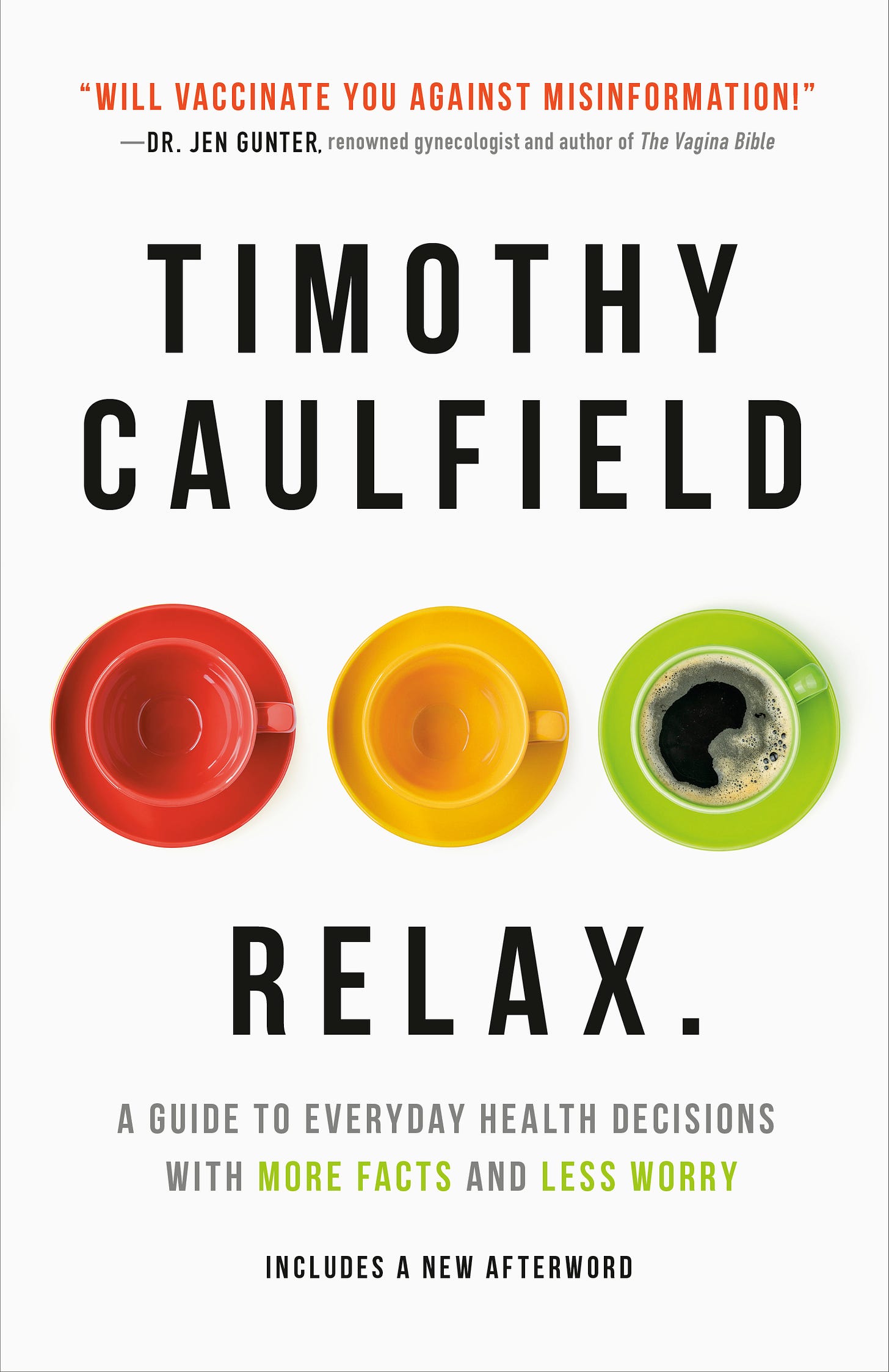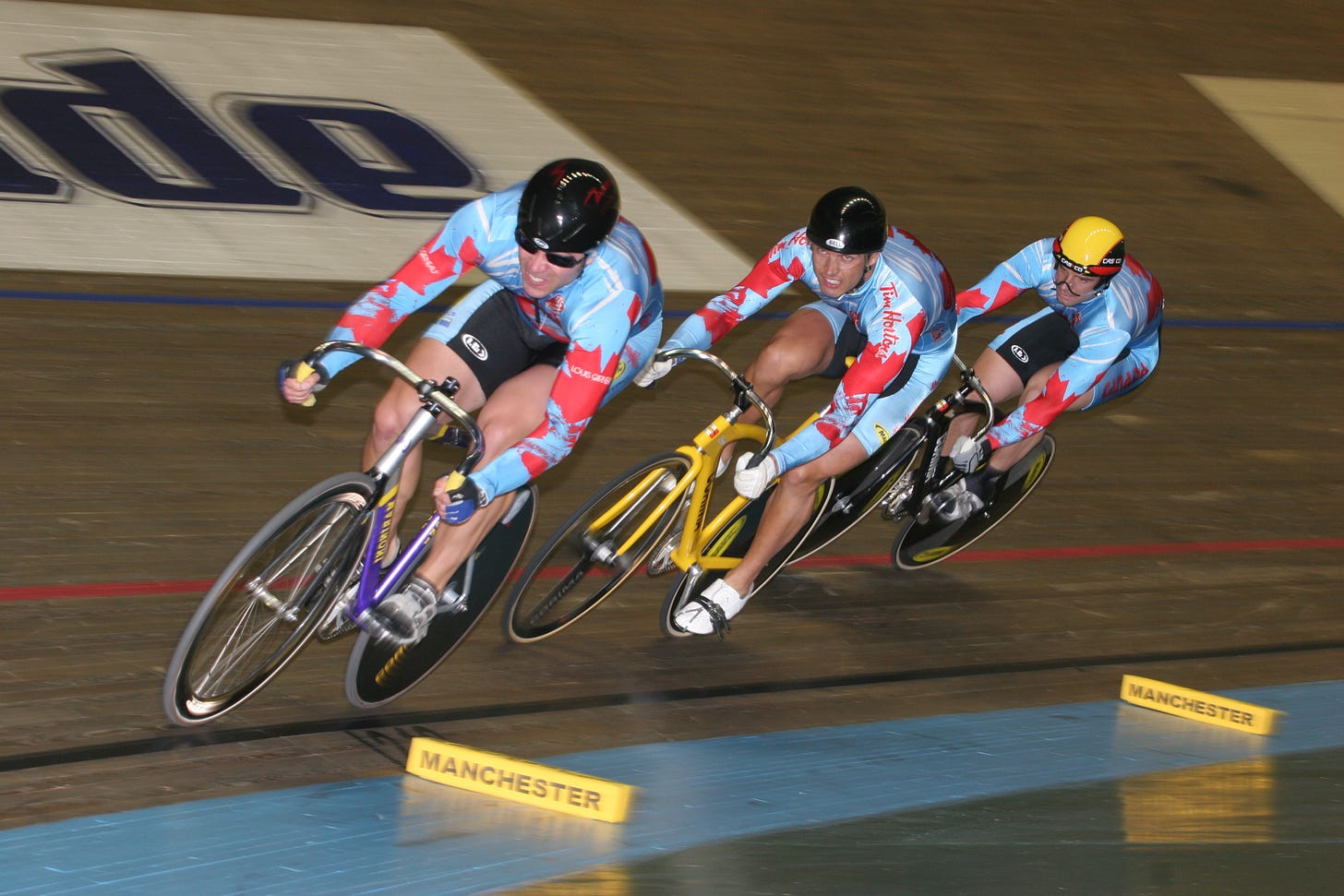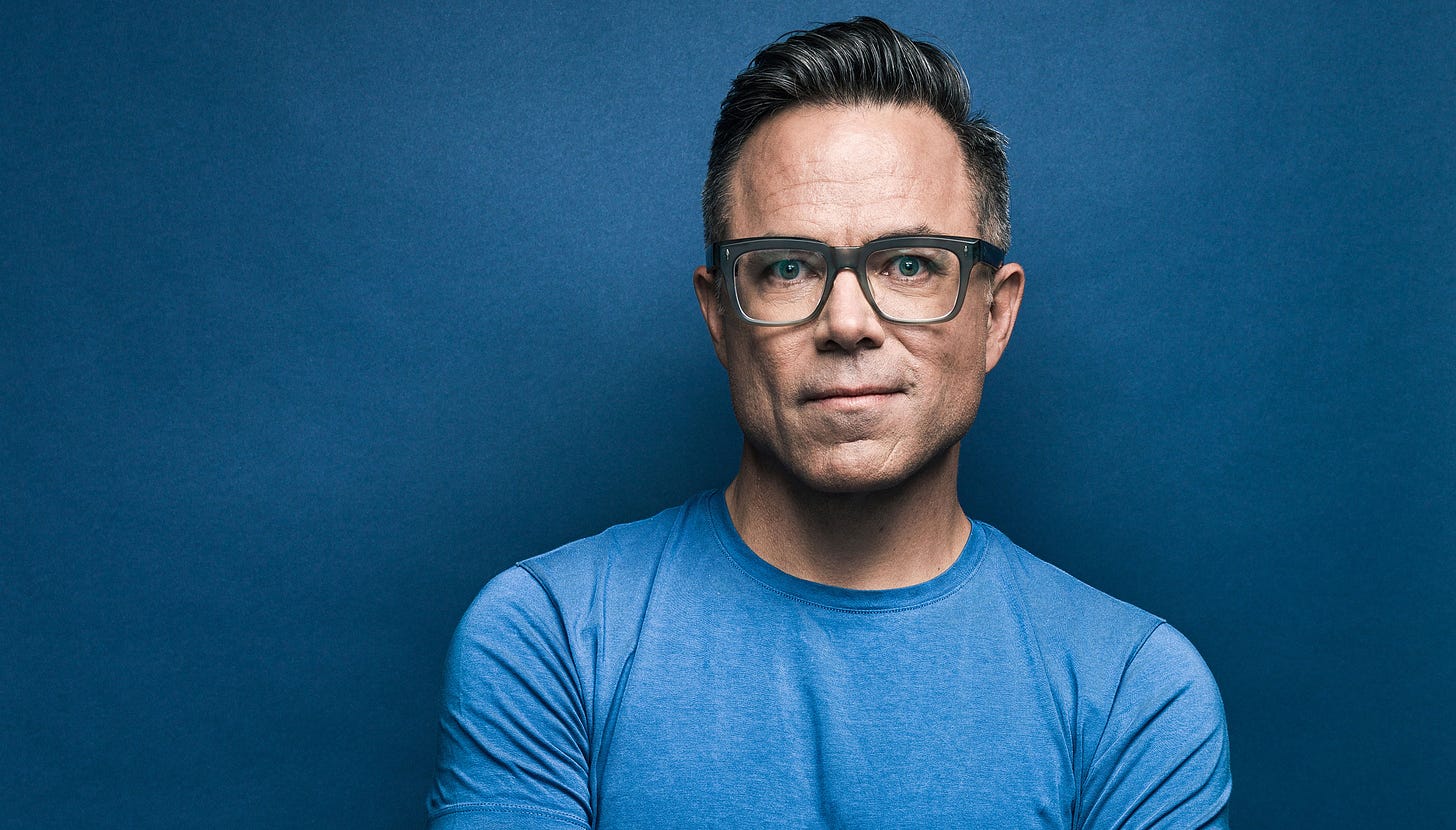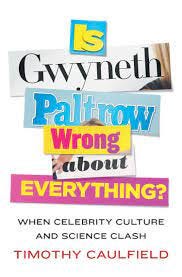The Reach Out: Timothy Caulfield
An admitted "exercise fanatic," the professor, author, and COVID misinformation debunker has rarely missed a workout since he was a teenager.
Timothy Caulfield is a Canada Research Chair in Health Law and Policy, a Professor in the Faculty of Law and the School of Public Health, and Research Director of the Health Law Institute at the University of Alberta.
Caulfield has been a prominent voice in debunking COVID misinformation throughout the pandemic. He is quoted frequently in the national press and is vocal about combatting vaccine disinformation on social media.
Caulfield is the author of The Cure for Everything: Untangling the Twisted Messages about Health, Fitness and Happiness, and Is Gwyneth Paltrow Wrong About Everything?: When Celebrity Culture and Science Clash. His most recent book, Relax, Dammit!: A User's Guide to the Age of Anxiety, is now available in paperback.
Caulfield is also the host and co-producer of A User's Guide to Cheating Death, which streams on Netflix and has been shown in over 60 countries.
I spoke with Tim Caulfield about why making time for exercise is important to him.
How is being active a part of your life?
I am a little bit of an exercise fanatic, so it has always been a huge part of my life. I don’t think I’ve gone a week without purposely exercising since I was 12 years old. I just love it. My wife Joanne — who I met on a track team — is the same, and I think it's fair to say that our kids now are, too. When we go on holiday, one of the very first things we do is find a gym where we can all work out together. We have great memories of the many unique gyms we’ve been to.
Before the pandemic, we spent the summer in Berlin and went to a hardcore weights gym. At the end of the summer, the owners actually told us they’d never seen an entire family so dedicated to working out — and doing so all together.
Do you have a specific exercise routine?
I absolutely do. When I’m commuting, I bike everywhere. If I’m not commuting, I will go for an hour walk a day.
I also work out six days a week (I know, I’m an exercise nerd). One day is interval training. One day is full body weights (squats, deadlifts, chin-ups, bench press). One day, I do longer intervals — for example, in the summer, my wife and I will do hill workouts on our bikes. Another day, I do intervals/biometrics. Then a day of full body weights, perhaps changing it up a little bit. And then one day of just sort of fun aerobics stuff — for example, like a long slow ride around the city with my wife.
I work out at night, which is perfect, because my wife likes working out in the morning, so we never get in each other’s way in our basement gym.
Have any of your exercise routines changed since COVID began?
For sure. Before the pandemic, I was commuting everywhere — to work, to a coffee shop — on my bike. Now, since I’m not commuting as much, I actually get on my Spin bike and pretend like I’m commuting, just to keep as active as I was before. Or I’ll go outside for a quick walk around the block. So I have tried to make sure that I’m including exercise snacks throughout the course of my day.
It can be easy to forget how important this is. I think we need to remind ourselves that being active is a priority. Going for a walk around the block, or hopping on my Spin bike for a few minutes, is not an indulgence. It's good for you — and it's good for your productivity — so you shouldn't minimize its value.
It doesn’t sound like you need to worry about getting enough exercise. Do you wear a fitness tracker?
I am not a fan of quantifying exercise, so no, I don't wear one. I think there's a little bit of evidence that it can actually take away the fun for some people. I used to be a competitive cyclist and I had all the metrics on my bike — power, cadence, speed — but now I don’t do any of that. I think that especially as you get older, you have to be a little bit more forgiving of yourself. Who cares about the stats, so long as you’re active. It’s not like the Canadian Olympic team is going to be calling me!
Is there something that motivates you to keep active?
I really enjoy the science of exercise, so I always keep my eye on what the evidence says about exercise. I don’t do this because I think it’s going to have a dramatic impact on my own physical abilities. I’m just motivated by the science. For example, trying a new kind of weight pattern, or number of reps. Even though I know it probably doesn't make a difference, it’s just being active that matters.
I like exercise so much that I consider it a reward for me. At the end of the day, I reward myself with exercise. I know that's not the case for everyone, and I think we need to remember this when we're designing exercise interventions. We have to talk about exercise in a way that gives people the opportunity to do it in a way that works for them and that they enjoy.
It sounds like your perspective on exercise has changed a little bit.
Yes, what has changed is how I talk to other people about exercise. For so long, I focused mainly on the optimum way to exercise to create physiological changes — for example, the right weight load and interval training — but I don't think that way at all anymore. I think the most important thing is to just move and be active. If you love dancing, dance; if you like walking, walk; if you like flipping tires, flip tires!
When you're doing your workouts, do you listen to music, the news, or podcasts?
This is kind of funny. When I'm outside exercising, I very much try to enjoy the activity and decompress. Sometimes I’ll listen to an audio book.
But when I'm doing intervals or weights, I am obsessed with trashy crime procedurals. Not high quality ones like the latest British high quality, prestige show. I'm talking network procedural with a predictable pattern. The ones where you don't have to really be watching because you know all the characters. It drives my family nuts because they're just terrible shows.
How do you think we can encourage kids and teens to get more exercise?
I really think that the message has to be MOVE. We need to get away from shaming people for not doing the right activity. What’s going to make a difference is getting people to be active over their lifetimes. So I think we have to talk about how we build our cities — encourage commuting, make movement normal and enjoyable. Kids should find an activity that involves movement, so they don't think of it necessarily as exercise, and over the long term, that's what's really going to make a difference.
Is there a sport or fitness trend that you would want to try?
Actually, it's not really a physical activity. I want to try something that takes my mind away from my work. When I was a kid and teen, I was very interested in archery. So I would like to try that again because it's an opportunity to not have to be on the screen. So there's a quirky answer for you!
Do you know anyone who loves exercise as much as Tim Caulfield does? I like that he looks for ways to “move” throughout the day. I also agree that kids should find physical activities that they enjoy. Now about those trashy crime procedurals…..
Thank you, @CaulfieldTim
To read about how other familiar faces keep fit active and fit, please subscribe.😀
If you enjoyed this interview, please share it on social media.
Please follow me on Twitter @The_Reach_Out
https://twitter.com/The_Reach_Out







